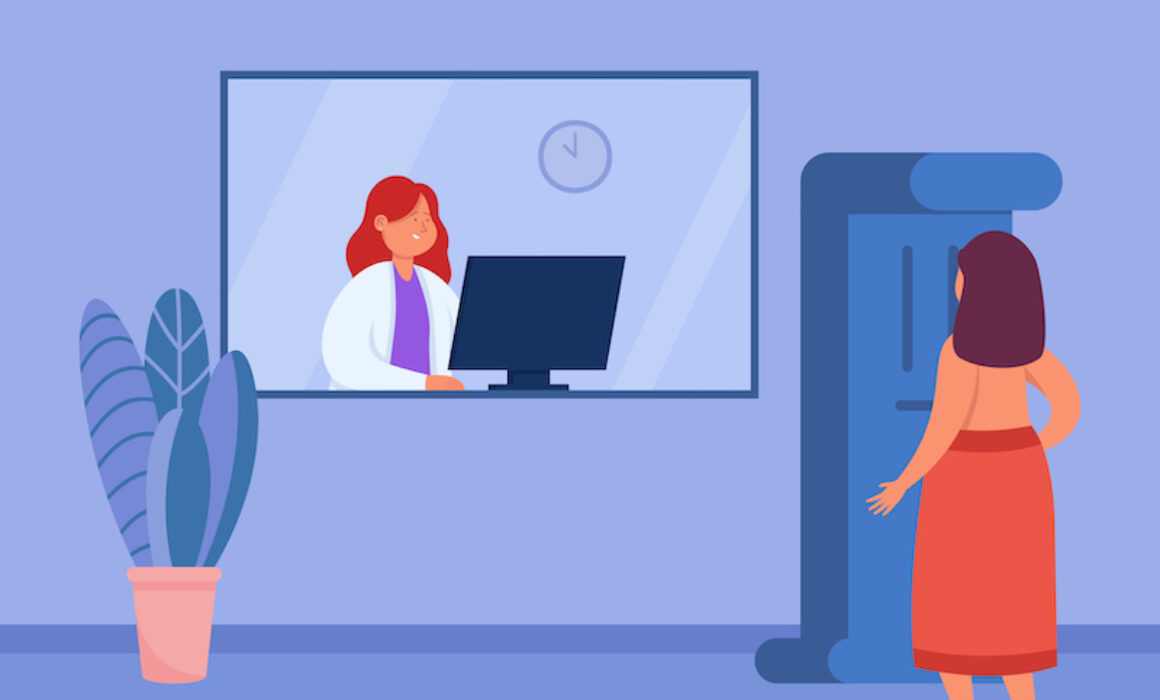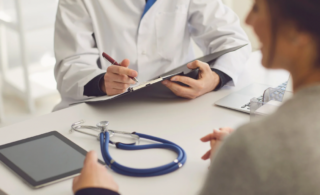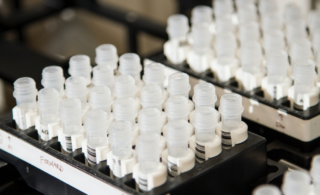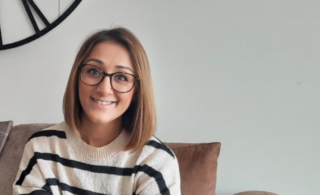
Let's Nail Breast Cancer - Help support our urgent appeal on the 19th - 20th May 2024
Let's Nail Breast Cancer - Help support our urgent appeal on the 19th - 20th May 2024
Let's Nail Breast Cancer - Help support our urgent appeal on the 19th - 20th May 2024
Let's Nail Breast Cancer - Help support our urgent appeal on the 19th - 20th May 2024
Let's Nail Breast Cancer - Help support our urgent appeal on the 19th - 20th May 2024
Sometimes you know when something doesn’t feel right in your body despite a medical opinion that there is nothing wrong. It can be suitable in some circumstances to seek further medical advice or possibly a second opinion. This article describes such a situation.
By Karen
In December 2018 I was diagnosed with HER2 positive breast cancer following a referral to the breast clinic from my GP. Feelings of numbness, shock, and anger ran through me as only three months earlier I had received clear results from a mammogram.
I knew my own body, and had questions about my “all-clear”
In August 2018 I was invited for a mammogram. I was only 49 years old but the NHS were offering mammograms to some ladies under the age of 50. Coincidentally around that time I had noticed a small change to my right breast, so it was the ideal opportunity to get it checked. A couple of weeks later the results came back clear so I thought nothing more of it. However, over the next couple of months, things still didn’t look right, so I decided to get a second opinion from my GP. The following week I had an appointment at the breast clinic.
I attended the appointment alone on my way home from work as I thought it would be quick and wasn’t expecting to get any results that day. After another mammogram and two ultrasounds I was told I had two tumours in my breast and abnormalities in my lymph nodes. Biopsies were then taken.
In between all of this I contacted my husband, who came to the hospital to talk to the specialist with me. We were told I had HER2 positive breast cancer and as it had spread to my lymph nodes I would need CT and MRI scans to see if it had spread to other organs in my body. Our lives had been turned upside down within a matter of minutes.
The shock of the diagnosis hits the family
We left the hospital with a bundle of booklets and leaflets to read. We were speechless, thinking about how to break this news to our two teenage children waiting for us at home. I had never even been poorly; I felt well and looked well and could not understand how this could be happening to me. I felt guilty having to burden my children with the news of their mother being diagnosed with cancer. We explained what we could to them even though we did not really understand it all ourselves.
Our daughter who was 18 years old at the time didn’t really say much – that was her way of dealing with it – but over time she did her own research and would ask questions when it suited her. Our son who had just turned 16 wanted to know everything and was very open about it, but of course I had no idea what was going through their minds.
I had always been the strong one in the family, keeping day to day things running as a lot of mums do. I was very fit and classed myself as healthy, I went to the gym 2-3 times a week and would often go running after work. It was just so wrong.
Christmas came and went in a blur, even though we tried to make it as normal as possible. We avoided the subject as much as we could, but it never went away. The week after Christmas I had more scans which showed the cancer had spread to my liver. I was told I had secondary cancer that could not be cured. I would receive palliative care. Terrified was an understatement.
How could a mammogram have missed this?
How the hell could this be possible when only three months earlier I had clear results from a mammogram. I needed to know everything – how long would I live? What was the point in having treatment if I could not be cured? Would I live a normal life? I was firing questions left, right and centre at the Oncologist. My husband didn’t want to hear the answers. He didn’t want to know. How the hell could I tell my children and my mum?
Starting chemotherapy
A treatment plan was put in place and by mid-January, I took a break from work and began chemotherapy, which I had every three weeks for 18 weeks. I had signed the consent forms and listened to the oncologist but vaguely remembered what the side effects were. I just knew I had to get through it. My biggest fear of chemo was losing my long, dark hair. That was all I had really heard of in the past, people losing their hair, but looking back now it didn’t matter. I focused on my diet, knowing my immune system would be at an all-time low, but there were days I couldn’t eat anything.
Some days the side effects were just too much, with a horrible metallic taste in my mouth, sickness, diarrhoea, extreme fatigue and dehydration which at one point led to two nights in hospital on a drip. At times I felt like I was in someone else’s body. On my good days I tried to carry on as normal and even went to the gym a few times to stay as fit as I could, but often felt worn out afterwards. I tried to do the ‘normal things’ when I could, making sure I kept things as normal for the family and I also wanted to reassure my family I was ok and was coping even though at times I wasn’t.
Dealing with hair loss
I lost a lot of hair even though I wore the cold cap during chemo, but as time went on it didn’t matter. Once I had got over the initial handful of hair falling out, I decided to get my hair cut short and I got a wig which was a similar style to my own hair. It meant I didn’t need to wear a headscarf. I didn’t need people to know I had cancer. After 3 rounds of chemo the tumours had remained the same, so I was unsure if the treatment was even working and wondered if it was worth going through it all.
I was told if I responded well to treatment I would be able to have a mastectomy but if not, they wouldn’t put me through surgery as it wouldn’t be worth it. I prayed I would respond. After six rounds of chemo the scans showed the tumours in my breast had shrunk and I was able to have surgery. I just wanted rid of the cancer from my body.
Opting for surgery
In June I had a right mastectomy, and after five days in hospital I was allowed home with drains attached, feeling weak and emotional. Even though the physical appearance didn’t really bother me I found it hard at times looking at myself. I felt stripped of everything I had ever had, I was a totally different person. Gone was the healthy glow, I looked tired and weak. However, biopsies from my breast and lymph nodes were clear which was great news, I just had to now contend with the tumours in my liver. I was told I was fit, young and healthy enough to have a liver resection if needed, but the tumours were small and had remained stable so surgery was not needed at that time.
15 rounds of radiotherapy followed in September which took its toll on me. My skin became very dry and burnt in places and was very tender to touch. I had to travel 30 miles a day, 5 days a week for three weeks and by the end of it I felt exhausted. My body needed time to mend and I needed to rest after 10 very tiring months of hospital appointments, scans and treatment. I felt physically and mentally drained and hadn’t had time to absorb what had really happened and what I had been through.
Explaining the clear mammogram: trust your gut instinct
In between treatments I had an appointment with the radiographers in relation to my mammogram results. I needed to know what had gone wrong. I was given an explanation as to how they are screened and was told results are not always correct. It wasn’t what I really wanted to hear and their apologies meant nothing. I was just glad I followed my gut feeling and got a second opinion when I did. If something doesn’t look or feel right don’t hesitate to get it checked out.
Secondary breast cancer means treatment for life
Having secondary cancer I have to continue with treatment for life. I go into hospital every three weeks to be given target therapy drugs to control the cancer and to stop it spreading. I have regular scans and up to now everything has remained stable. Living with cancer is very hard at times. I have lots of mood swings and also have to deal with the side effects from the treatment as well as side effects from chemo, the main one being nerve damage. However, I do try to live my life as normal as possible.
I am back at work even though brain fog kicks in on many days. I also go to the gym and like to walk most days to build my fitness levels back up. Cancer has changed me as a person. I feel as though I have rebuilt my life as someone else. I’m not the ‘old’ me anymore. My priorities and outlook on life have changed altogether.
I often look back at what we have been through as a family and wonder how we got through it. The stress, upset, worry and unknown have affected us all in different ways and we’ve all coped in different ways. Nothing can prepare you for the mental and physical strain it causes. I feel truly blessed to have the love of many friends and family who have been there all the way on what has been and still is at times a very, very hard journey.
To return to the homepage of our Information Hub, click here where you can access more helpful information, practical advice, personal stories and more.
Future Dreams hold a range of support groups, classes, workshops and events to help you and your carers during your breast cancer diagnosis. These are held both online and in person at the London-based Future Dreams House. To see what’s on offer and to book your place, see here.
October 2021 (Reviewed December 2023)
This article was written by a guest author based on their own experience of breast cancer and its treatment. It is important to note that this is one person’s experience and that whilst there may be commonalities between the experiences of different people, everyone has a different diagnosis/treatment plan/general experience. The information and content provided in all guest articles is intended for information and educational purposes only and is not intended to substitute for professional medical advice. It is important that all personalised care decisions should be made by your medical team. Please contact your medical team for advice on anything covered in this article and/or in relation to your personal situation. Please note that unless otherwise stated, Future Dreams has no affiliation to the guest author of this article and he/she/they have not been paid to write this article. There may be alternative options/products/information available which we encourage you to research when making decisions about treatment and support.
Share

Support awareness research
Donate to those touched by BREAST cancer
Sylvie and Danielle began Future Dreams with just £100 in 2008. They believed nobody should face breast cancer alone. Their legacy lives on in Future Dreams House. We couldn’t continue to fund support services for those touched by breast cancer, raise awareness of breast cancer and promote early diagnosis and advance research into secondary breast cancer without your help. Please consider partnering with us or making a donation.



